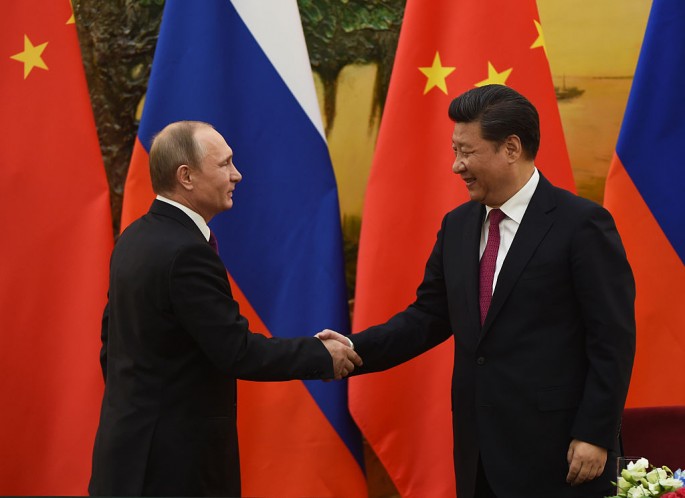The unfinished steel rail bridge jutting from the Chinese side of the Amur River for almost a decade has become the symbol for Sino-Russian strategic partnership, according to an article published by The New York Times.
Russia had failed to build its part of the project, which left a gap between the bridge and the riverbank of the Russian shore at Nizhneleninskoye, about 4,000 miles from Moscow.
Since 2014, there had been numerous agreements for joint projects between Chinese and Russian leaders, supporting Russia's "pivot to Asia," but the unfinished rail bridge represents the more realistic picture of the division between the two countries.
Had the bridge been completed, it would have reduced the cost of transporting iron ore from Russia to China from 646 miles to 145 miles.
But a decade after the two countries have agreed to start the project, Russian officials have yet to announce that construction work will start on the bridge and it will be operational within two years.
According to the report, the gap between expectation and reality has been a recurring characteristic of the relationship between the two countries.
The leaders of the two countries have promised to increase bilateral trade to $100 billion this year and $200 billion by 2020, but the two-way trade dropped by 28 percent last year.
The 30-year gas deal worth about $400 billion, signed by Putin during his China visit in 2014, also suffered delay after construction of the pipeline stalled.
In May, Li Fenglin, a former Chinese ambassador to Moscow, complained about the slow construction pace on the Siberian pipeline and other projects.
"Don't just drag your feet. You should start working energetically," Li said, adding that the partnership will work if both countries will move away from large state-sponsored projects and shift toward cooperation with small and medium-sized firms.
On the other hand, Russian businessmen have also expressed their frustration on the Chinese markets.
Viktor F. Vekselberg, the billionaire chairman of the Russian chapter of the Russian-Chinese Chamber for Commerce in Machinery and High Technology Products, said during the Moscow conference: "What should be noted from the results of our work of the last year is that there has been a catastrophically low level of cooperation between the two countries."
However, the relationship between China and Russia may go beyond this and both have what each other needs--Russia has its natural resources and China has the market and the capital.



























